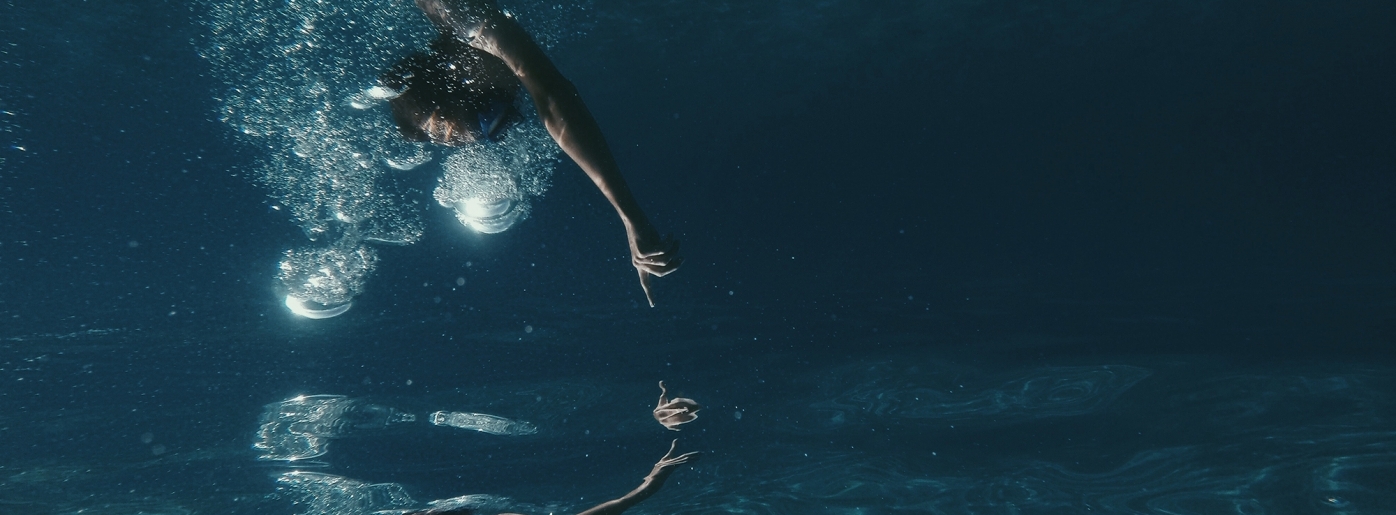Human curiosity knows no limits, and our desire for new impressions is insatiable. Man toils over blueprints and builds broad-winged aircraft to break away from Earth's gravity and soar up into the sky free and easy, like a bird. An inquisitive person invents rock pitons, slings a rope around them and stubbornly climbs up, trying to fill the resonating air of the highlands into his lungs and take a glance at the dazzling white snow on the mountain peaks. He wants to discover the wonders hidden in the depths of the sea and invents scuba gear to go underwater for a while, touch the fragments of sunken ships, explore the mysterious caves and admire the beauty and grace of the inhabitants of Neptune's kingdom. Nothing in the world can defeat human curiosity, even the loss of eyesight, hearing or a limb. However, in the case of such a loss, it gets harder to satisfy curiosity, and it requires the help of an experienced instructor and reliable companion who is aware of all aspects of interaction between a disabled person and the world. Ilya Dubrovsky is an instructor of two significant international diving associations PADI and CMAS and member of the Russian Commission of CMAS (Russian Confederation of Underwater Activities) for scuba diving for people with disabilities. His story of how he was introduced to diving and why he started training disabled people is extremely interesting and educating.
- I've been training people with disabilities to dive for more than fifteen years although I've known disabled people for much longer. I used to do rock climbing. We climbed rocks without safety equipment, which, of course, I wouldn't recommend. But we were young and foolish risking our lives and health. Rock climbing is not a computer game, and there are no replays. Having made a mistake, you'll inevitably fall after some time. A good friend of mine got smashed on the rocks and had to use a wheelchair for the rest of his life, but he was an extremely strong man. He designed his own handbike, which he used to ride thousands of miles; he travelled a lot and climbed mountains. We even went to America to take part in the New York City Marathon.
Photo by Marco Assmann
Audio description: This is a colour underwater photo. A diver is swimming by rocks in a deep body of water. The man is wearing a mask, swimming shorts and fins.
In the past, a friend of my mother's married Yuri Astakhov, a wonderful, cheerful, strong and very intelligent man. He used a wheelchair, but he could easily outpace any abled person. Our families were mixing with each other, and I'd known him since I was a kid. Once, when I was still at school, I visited him in hospital before he had surgery. He offered me a biscuit, and suddenly I felt like I couldn't eat it. I just couldn't because there were disabled people around me. I'd never even thought about it before, but this time I felt squeamish in the situation when I was offered food. I realised that those feelings were rather strange, completely illogical and unjustified – after all, Uncle Yuri was also disabled, but I'd known him for ages and treated him with great respect. I pondered about this situation and came to the conclusion that a healthy person, probably, has an aversion to a disabled person, and it is a kind of defence mechanism inherent in humans and animals in general. After all, animals try to reject a sick and defective creature from their group so that predators quickly eat it, and it wouldn't pose a risk of infection to the group. However, this attitude towards people is wrong. This is the conclusion I came to.
The same can be said about a sense of superiority, absolute superiority of power. What you can quite often witness today is a desire of many people to look away from a person with disabilities or, the other way round, stare at them. What is it all about? Pity for a person deprived of some opportunities? Awareness of your own physical strength? Such an attitude can be linked to a whole complex of reflexes of rejection of disabled people. I am glad that I've managed to overcome this. I wouldn't say I was struggling with these feelings, but I noticed them inside myself and managed to get rid of them within a short period of time. Since then, I no longer feel disgusted by someone missing a limb. However, it still makes me uncomfortable to see a disabled person filthy and unkempt. Uncle Yuri, in many ways, has changed my attitude towards people with disabilities.
I first tried scuba diving in the winter of 2001 in Egypt. Before that, being keen on swimming in and, particularly, under the water, I didn't understand why some people wanted to use expensive and heavy scuba gear. However, after my first scuba diving experience, I realised that it made sense in the Red Sea. As for people with disabilities, it makes sense for them even in our waters because, with its help, they can stay underwater safe and confident for a long time. For a young and healthy person, it's easy to dive into the water, look around and quickly return to the surface, but, for a legless swimmer, a 15-metre dive without scuba gear requires a tremendous amount of effort and long training.
Audio description: This is a colour underwater photo. A man wearing a mask, with a snorkel in his mouth, is swimming right under the water's surface. Both of his arms are stretched forward, and he has a waterproof watch on his left wrist.
Having returned home, I shared the idea with the guys from the sport tourism club for people with disabilities. Immediately, there were people who wanted to participate in it! I had to pay for the sessions to the instructors who agreed to train them. However, the fee was rather high, and, over time, I realised that it would be better and more practical if I became a scuba instructor myself. Suddenly, people appeared who were willing to support me financially in this endeavour.
When I first started working as an instructor, I was dealing only with people with musculoskeletal disorders. For them, diving appeared to be a salvation. Their life is a constant struggle against gravity, which haunts them, ruins their dreams and deprives them of pleasures. Once in the water, a person accustomed to gravity and the stiffness of their body does not initially understand what is going on, but then they realise that underwater they are weightless. I must admit: it makes me so happy to see what great pleasure movement impaired people get from diving. You can feel free underwater as it gives you a feeling of flying. One of my female students with paralysed legs loves walking along the bottom, moving her feet with her hands. She always does it when she gets a spare moment.
When I started training deaf people, I discovered new diving opportunities. Underwater, hearing impaired divers feel very comfortable and can talk freely. We swam and communicated using sign language. In 2003, a blind young man came to my class for the first time. He turned out to be a quick learner, and it was a great pleasure to teach him. When my colleagues learned about my new student, they were surprised and asked why I was giving blind people a hard time, who, in their opinion, would not be interested in diving. I argued that visually impaired people had better sensations, knew the depth of water without looking at a depth gauge and where the shore was without checking the compass. Moreover, those blind people who have a passion for scuba diving and are resourceful feel more confident underwater than sighted people. Their spatial orientation is much better, which is essential in diving. The loss of visibility underwater often makes even experienced divers panic, which is one of the leading causes of death amongst scuba divers. In such a situation, blind people are more stable.
Now I train people with any form of disability. The classes take place in two Moscow swimming pools. One of them is located at Novogireyevo metro station and is quite shallow. The training programme is comprehensive and mainly aimed at giving students better water awareness. The other pool is located at Cherkizovskaya metro station. It is rather deep, and here we practice diving. Of course, there is a fee for admission and equipment rental, but the result is worth it.
You should bear in mind, of course, that diving is part of sport tourism, which makes it even more exciting. My diverse team and I often take part in different adventures: we climb mountains, explore caves, dive underwater, wander around cities and enjoy the local cuisine. Last year, we took part in a sports competition in the town of Anapa on the Black Sea, after which we stayed on, rented a bus and set off on an adventure: we did scuba diving and snorkelling, visited local markets, chatted with bikers and were even fined by border guards – the whole experience was unforgettable. I am sure that this type of follow-up to our sports competition left all of us with the most pleasant impressions.


